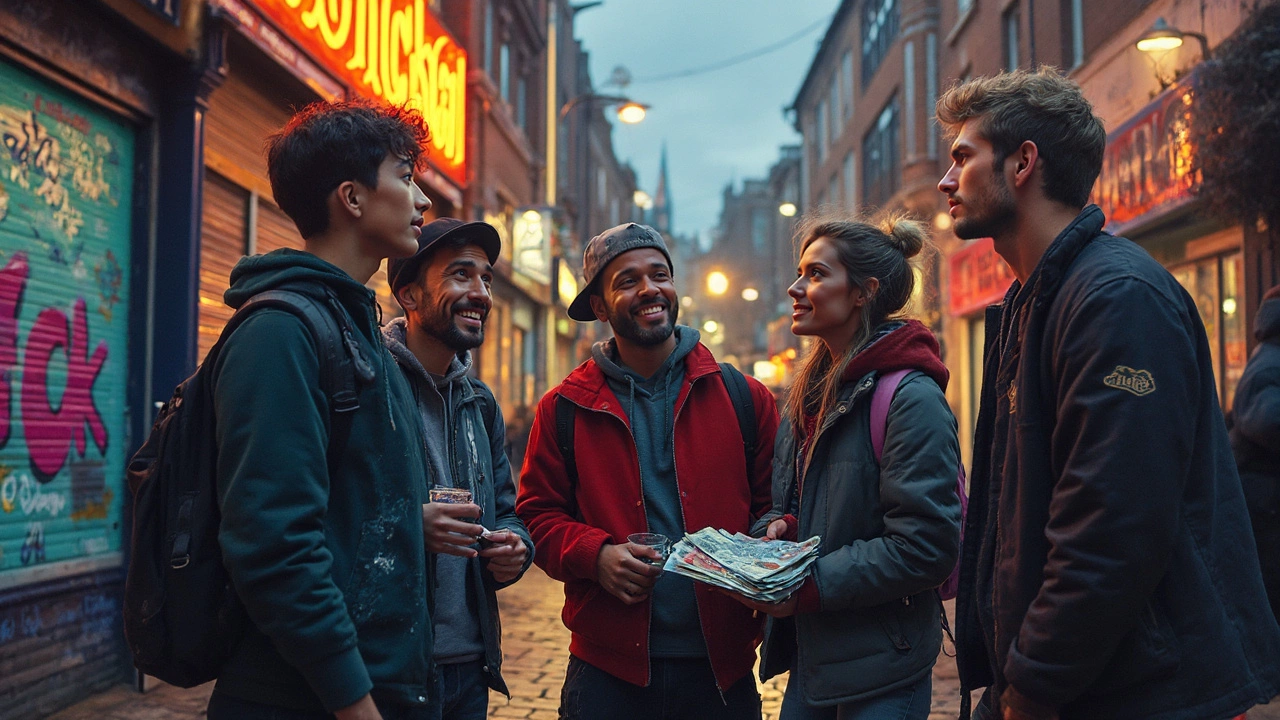Street Slang: What It Is and Why It Matters
Ever heard a phrase like “bet” or “ghost” and wondered where it popped up? That’s street slang – the informal words and expressions that grow in city streets, online feeds, and youth culture. It’s not just random chatter; slang reflects how people connect, how ideas spread, and often how language adapts to new tech or social trends.
Street slang usually starts in tight‑knit groups – think friends hanging out, local music scenes, or online gaming rooms. When a cool new term catches on, it spreads fast through social media, memes, and even TV shows. That’s why you might hear a phrase that sounded foreign a month ago suddenly appear in a mainstream ad.
How Street Slang Is Born
Most slang words start as inside jokes or shortcuts. A group will pick a word that feels fresh or funny and use it to save time or show belonging. Over time, the term leaks out of the original circle. If the phrase is easy to say and fits a common feeling, it can go viral. For example, “lit” moved from party slang to describe anything exciting, and “flex” shifted from gym talk to mean showing off online.
Technology fuels this process. TikTok, Twitter, and Instagram let trends explode in hours instead of months. A single viral video can turn a phrase into a global meme. That’s why you’ll see slang popping up in news headlines or product names – companies want to sound current.Another driver is music. Hip‑hop, grime, and drill often embed slang in lyrics, giving words a broader platform. When a hit song uses a phrase, listeners start repeating it, and the term becomes part of everyday speech.
Using Street Slang the Right Way
If you want to sound authentic, start by listening. Pay attention to how friends, influencers, or local communities use new words. Don’t force a term you don’t understand – it can feel awkward or even disrespectful.
Keep context in mind. Some slang is playful, while other words can be offensive or carry cultural weight. For instance, “woke” began as a call for social awareness, but now it’s often used sarcastically. Knowing the current vibe helps you avoid missteps.
Don’t forget that slang evolves. What’s hot today might be dated tomorrow. If you keep using a phrase that’s fallen out of favor, you risk sounding out‑of‑touch. Stay updated by checking trending hashtags or listening to new tracks.
Finally, enjoy the creativity. Slang adds color, humor, and efficiency to language. It lets people bond over shared experiences and gives voice to subcultures. Whether you’re chatting with friends or writing a blog post, sprinkling in a well‑chosen slang term can make your message feel fresh and relatable.
So next time you hear a new word, ask yourself: where did it start, why does it click, and how can I use it responsibly? That’s the fun of street slang – it’s always moving, always speaking the vibe of the moment.
-

Street Slang for $1000: What Does 'Rack' Mean?
Ever wondered what street slang people use for $1000? The word 'rack' pops up everywhere from hip-hop lyrics to everyday conversation. This article breaks down what 'rack' means, how it caught on, and why it shows up in places you wouldn’t expect, like the world of shelving. Find out how language and cash go hand in hand, and get a few tips for not getting lost in translation when money talk comes up.
